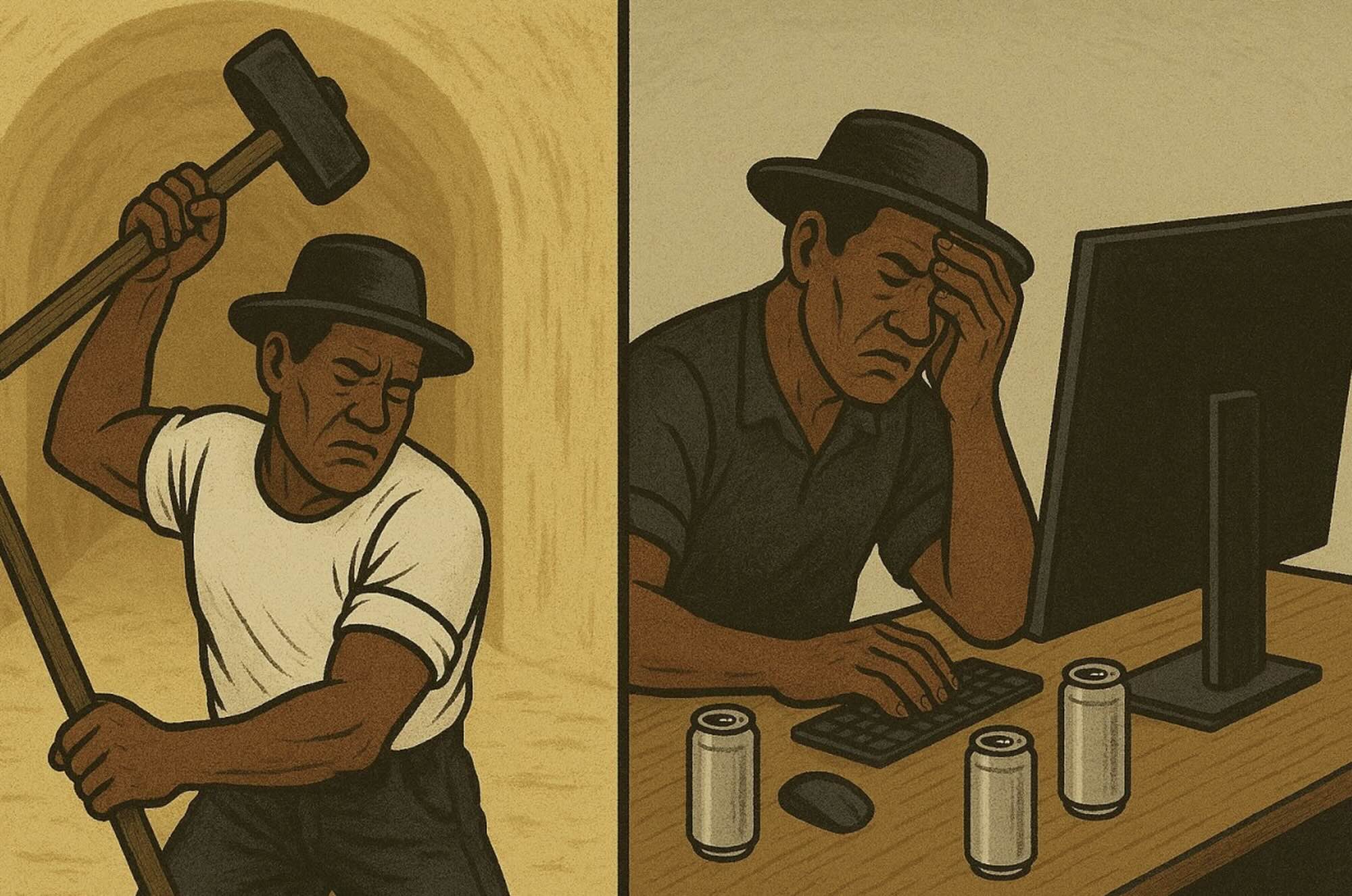In July 2025, Polish programmer Przemysław Dębiak spent 10 hours coding against OpenAI's AI model at the AtCoder World Tour Finals. He won by 9.5%. His condition afterward? "Completely exhausted" and "barely alive."
We've heard this story before.
The Legend That Warns Us
John Henry was a steel-driving man in the 1870s. When a steam-powered drill threatened to replace human workers, he challenged the machine to a contest. Armed with two 20-pound hammers, he worked for hours under the mountain.
He won. Then he died, hammer in hand, heart given out from the superhuman effort required to beat the machine.
The AI Wasn't Running at Full Capacity
The AI wasn't even running at full capacity. OpenAI's model was deliberately compute-restricted to make the competition "fair" for humans. Even handicapped, it demolished the other top 10 programmers in the contest—Dębiak was the only human who managed to stay ahead.
Think about that. A deliberately slowed-down AI still outperformed 9 out of 10 of the world's best competitive programmers. The one human who "won" had to operate on extreme sleep deprivation and push himself to complete exhaustion.
The Uncomfortable Truth
If you were competing against an unrestricted AI system today, you would lose. Decisively.
What Are You Really Fighting For?
John Henry's story resonates because it captures our desperate desire to prove our worth against machines. But here's the question that should keep you awake: Are you John Henry?
Are you the developer burning yourself out trying to prove you can still code faster than machines? Working 80-hour weeks while refusing to touch AI tools because you need to prove your human worth?
The future is already here. It's just wearing training wheels.
When those come off, what then?
The railroad industry didn't stop when John Henry died. It accelerated. The workers who disappeared were those who kept trying to out-muscle the machines.
Don't be John Henry.
Sources:
Exhausted man defeats AI model in world coding championship - Ars Technica

.svg)













